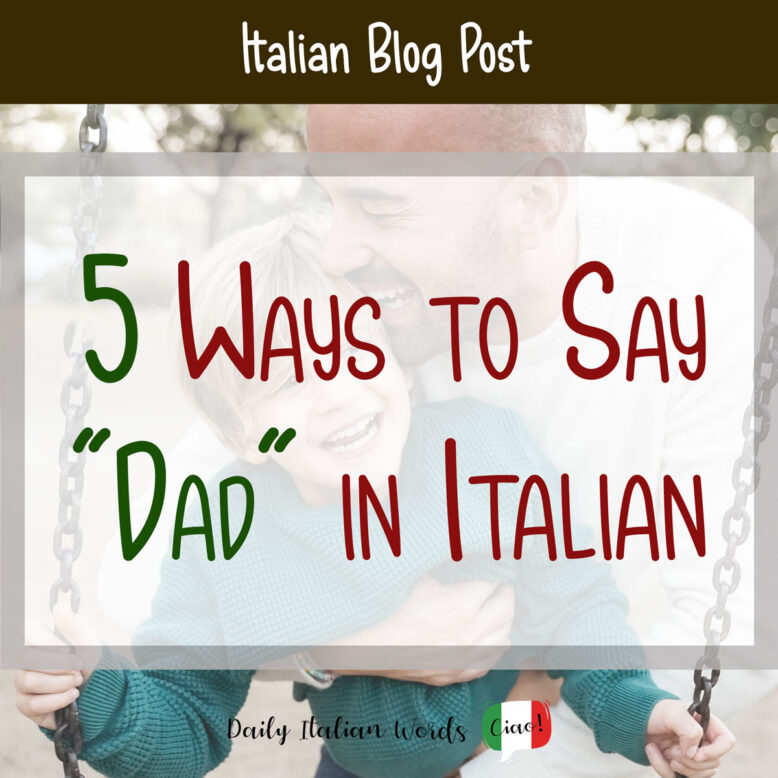Fatherhood – known as paternità in Italian – plays an extremely important role in family and society, and Italy is no exception. In fact, in the Italian language, there are six different ways to refer to the most important male figure in our lives. And with Father’s Day (la Festa del Papà) just around the corner, we can’t think of a better time to learn them!

1. Papà
Let’s begin with the most obvious and well-known way to refer to one’s father in Italian – papà – which is the equivalent of “dad” in Italian. It is a familiar and affectionate term, so you can expect to hear it used by children and adults alike. However, when talking about your father to someone of a higher station, such as your boss or university professor, it is preferable to use the next term on our list.

2. Padre
Here we have the more respectful way of referring to one’s father. You might use this word when talking about your father to someone in a formal context, such as a conversation with your employer or a shop employee. Note that it can also be used to refer to a priest (prete).
3. Babbo
Coming back to informal ways of saying “dad” in Italian, we have the sweet-sounding babbo. It is quite similar to papà but can be considered a little more colloquial and informal. You can expect to hear it used by children to refer to their dad in a playful or affectionate manner. In Tuscany, children almost exclusively use the word babbo, not just throughout childhood, but for their entire lives. The diminutive forms of this word are babbino (which was famously used in the title of Puccini’s aria O Mio Babbino Caro) and babbetto.
Babbo also appears in the name given to Santa Claus (or Father Christmas) in Italian: Babbo Natale.
Note: You may wish to avoid calling your dear old dad babbo when you travel down to Sicily or across to Milan, as it can also mean “stupid” in some dialects. We suspect it may be an abbreviation of babbeo (fool, idiot).

4. Papi / Papo / Papino / Pa’
I’ve grouped these four words into one section since they are all diminutive forms of papà. In other words, they are terms of affection or endearment. Unlike papà and babbo, papi, papo and papino are almost exclusively used by young children. I can recall the little boy I used to babysit in Turin using these terms to address his dear old dad, and now that I have a son of my own, we’re teaching him to do the same!
5. Capo / Boss / Vecchio
Teenagers and adult children may playfully refer to their father using terms that don’t actually mean “dad”, but instead describe his role in the family, appearance or attitude. The most popular terms include capo (boss), vecchio (old, old man) and the English boss.

Conclusion
As we’ve seen, there are more ways to refer to one’s father in Italian than there are fingers on one hand. Ultimately the choice of word will depend, not only on the context, but also the relationship between the speaker and their father. Whichever word you choose to use this coming Father’s Day, we can guarantee that your dad will be delighted to hear you address him in the language of love, especially if he is Italian or is of Italian descent himself!

Heather Broster is a graduate with honours in linguistics from the University of Western Ontario. She is an aspiring polyglot, proficient in English and Italian, as well as Japanese, Welsh, and French to varying degrees of fluency. Originally from Toronto, Heather has resided in various countries, notably Italy for a period of six years. Her primary focus lies in the fields of language acquisition, education, and bilingual instruction.


